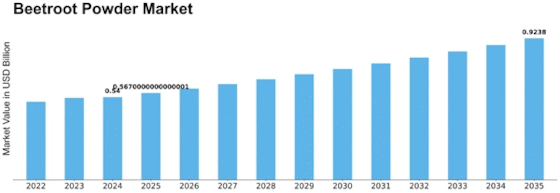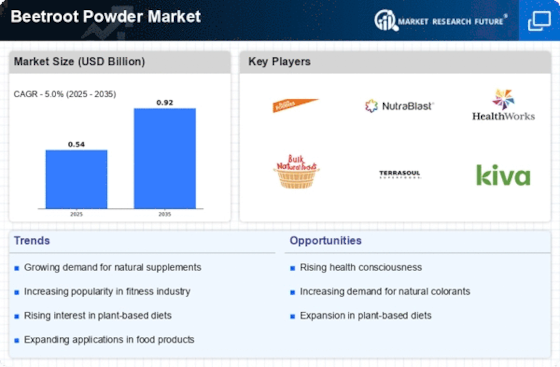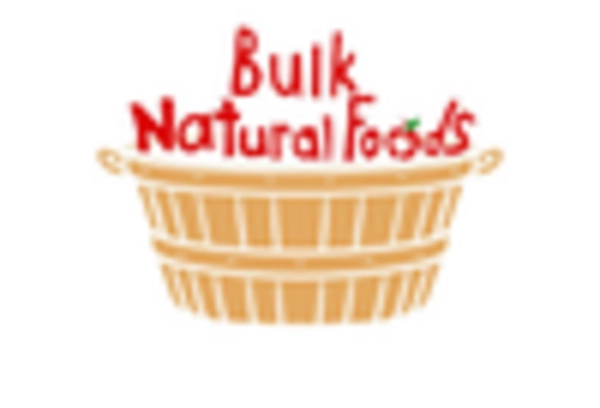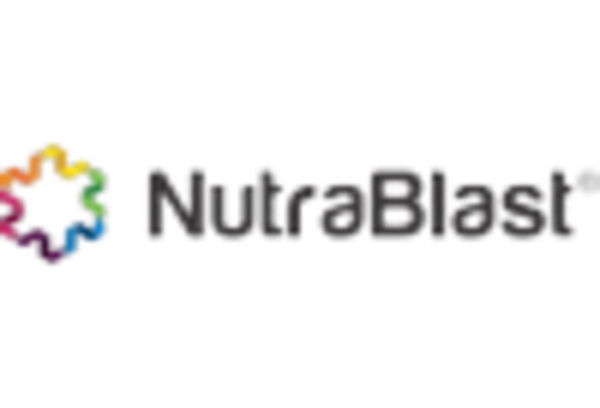Beetroot Powder Size
Beetroot Powder Market Growth Projections and Opportunities
Beetroot powder market size is influenced by several key factors that shape its growth and dynamics. One significant factor is the rising awareness among consumers regarding the health benefits of beetroot powder. Beetroot is rich in essential nutrients, including vitamins, minerals, antioxidants, and dietary fiber, which are associated with various health benefits such as improved cardiovascular health, enhanced exercise performance, and better digestion. As consumers become more health-conscious and seek natural and functional ingredients to incorporate into their diets, the demand for beetroot powder as a nutritional supplement and food ingredient has been steadily increasing.
Government regulations and policies also play a significant role in driving the beetroot powder market. Regulatory bodies impose standards and guidelines on food safety, labeling, and quality control to ensure consumer protection and public health. Compliance with these regulations requires beetroot powder manufacturers to adhere to strict quality standards and undergo rigorous testing and certification processes. Additionally, government initiatives aimed at promoting healthy eating habits and reducing the consumption of synthetic additives and preservatives further drive the demand for natural and minimally processed food ingredients such as beetroot powder.
Moreover, changing dietary preferences and culinary trends influence the demand for beetroot powder in various food and beverage applications. Beetroot powder is increasingly used as a natural food coloring agent, flavor enhancer, and functional ingredient in a wide range of products, including juices, smoothies, soups, sauces, baked goods, and snacks. The vibrant color, earthy flavor, and nutritional properties of beetroot powder appeal to consumers looking for clean-label and plant-based alternatives to artificial additives and flavorings. Additionally, the growing popularity of vegetarian, vegan, and plant-based diets has created opportunities for beetroot powder as a versatile ingredient in plant-based food formulations.
Technological advancements play a crucial role in shaping the beetroot powder market landscape. Innovations in processing, drying, and packaging technologies have improved the efficiency, quality, and shelf stability of beetroot powder products. Advanced techniques such as freeze-drying, spray-drying, and vacuum-sealing help preserve the natural color, flavor, and nutritional content of beetroot powder while extending its shelf life and enhancing its versatility in various applications. Additionally, advancements in extraction methods and quality control processes ensure consistency and purity in beetroot powder products, meeting the stringent requirements of manufacturers and consumers alike.
Furthermore, the globalization of food trade and supply chains drives the demand for beetroot powder as an ingredient in processed and convenience foods. Beetroot powder offers advantages such as ease of storage, transport, and handling compared to fresh or liquid beetroot products. Its long shelf life and versatility make it an attractive option for food manufacturers seeking natural and sustainable ingredients to meet consumer demand for innovative and healthy food products. Additionally, the increasing availability of beetroot powder through online retail channels and specialty stores facilitates its accessibility to consumers worldwide, further driving market growth.
Environmental factors and sustainability concerns also impact the beetroot powder market. As consumers become more conscious of the environmental footprint of their food choices, there is a growing demand for sustainably sourced and produced beetroot powder products. Manufacturers are increasingly adopting sustainable farming practices, such as organic farming, regenerative agriculture, and fair trade certification, to minimize environmental impact, conserve natural resources, and support rural livelihoods. Additionally, initiatives aimed at reducing food waste and promoting circular economy principles drive the utilization of beetroot byproducts such as pomace and juice waste for the production of value-added products like beetroot powder.



















Leave a Comment